
|
Cococubed.com
|
| Supersonic Burning Fronts (aka Detonations) |
Home
Astronomy research
Software Infrastructure:
MESA
FLASH-X
STARLIB
MESA-Web
starkiller-astro
My instruments
Neutrino Emission:
Neutrinos from de-excitation
Neutrino emission from stars
Identifying the Pre-SN
Neutrino HR diagram
Pre-SN Beta Processes
Pre-SN neutrinos
White dwarf pulsations:
12C(α,γ) & overshooting
Probe of 12C(α,γ)16O
Impact of 22Ne
Impact of ν cooling
Variable white dwarfs
MC reaction rates
Micronovae
Novae
White dwarf supernova:
Stable nickel production
Remnant metallicities
Colliding white dwarfs
Merging white dwarfs
Ignition conditions
Metallicity effects
Central density effects
Detonation density
Tracer particle burning
Subsonic burning fronts
Supersonic fronts
W7 profiles
Massive stars:
Pop III with HST/JWST
Rotating progenitors
3D evolution to collapse
MC reaction rates
Pre-SN variations
Massive star supernova:
Yields of radionuclides
26Al & 60Fe
44Ti, 60Co & 56Ni
SN 1987A light curve
Constraints on Ni/Fe
An r-process
Effects of 12C +12C
Neutron Stars and Black Holes:
Black Hole spectrum
Mass Gap with LVK
Compact object IMF
He burn neutron stars
Stars:
Hypatia catalog
SAGB stars
Nugrid Yields I
He shell convection
BBFH at 40 years
γ-rays within 100 Mpc
Iron Pseudocarbynes
Pre-Solar Grains:
C-rich presolar grains
SiC Type U/C grains
Grains from massive stars
Placing the Sun
SiC Presolar grains
Chemical Evolution:
Radionuclides in 2020s
Zone models H to Zn
Mixing ejecta
Thermodynamics, Opacities & Networks
Radiative Opacity
Skye EOS
Helm EOS
Five EOSs
Equations of State
12C(α,γ)16O Rate
Proton-rich NSE
Reaction networks
Bayesian reaction rates
Verification Problems:
Validating an astro code
Su-Olson
Cog8
Mader
RMTV
Sedov
Noh
Software Instruments
2026 AAS Journals
AAS YouTube
Listing of 500+ Author Videos
AAS Peer Review Workshops
Outreach Material
Education Material
Other Stuff:
Bicycle Adventures
Illustrations
Presentations
Contact: F.X.Timmes
my one page vitae,
full vitae,
research statement, and
teaching statement.
A real detonation has a rich cellular structure quite unlike the simple 1D picture.
 1D picture |
 2D & 3D picture |

Maximum pressure triple-point tracks |
|
On the Cellular Structure of Carbon Detonations (2000)
In this article we present the results of a numerical study on two-dimensional carbon detonations. For an upstream density of 10$^7$ g cm$^{-3}$ the length-to-width ratio of the detonation cells is about 1.6 and is not strongly dependent on the spatial resolution of the simulation. However, the curvature of the weak incident shocks, strength of the triple points and transverse waves, and sizes of the underreacted and overreacted regions all depend strongly on the spatial resolution of the calculation. These resolution studies help define the minimum resolution required by multidimensional Type Ia supernovae models where the cellular structure of a detonation front is a key feature of the model.
These 2D and 3D cellular detonation models won the Gordon Bell Prize in High Performance Computing, Special Category at Supercomputing 2000.
Additional 2D and 3D visualizations from this effort are avaliable.
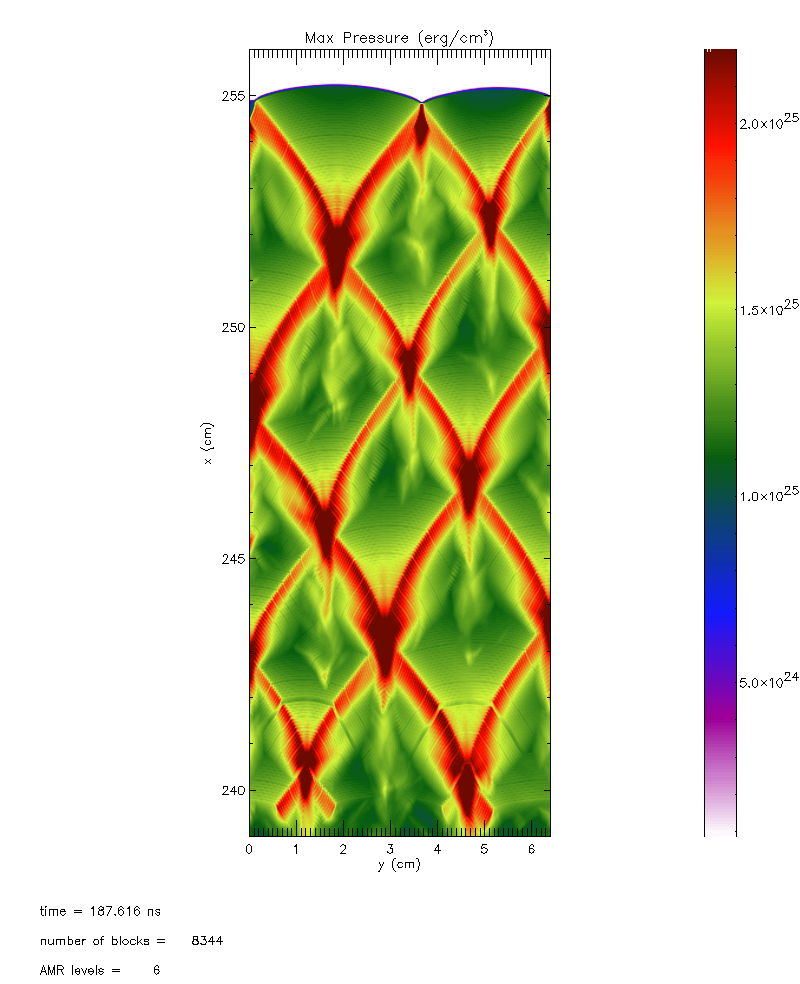
2D, maximum pressure |
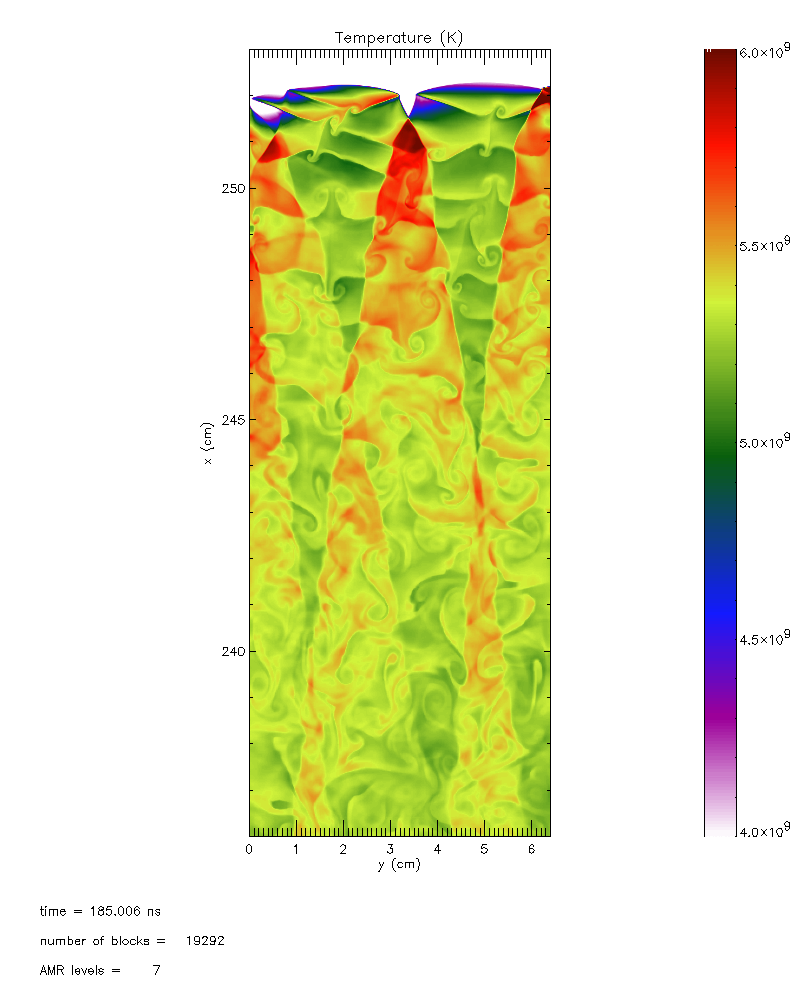
2D, temperature |
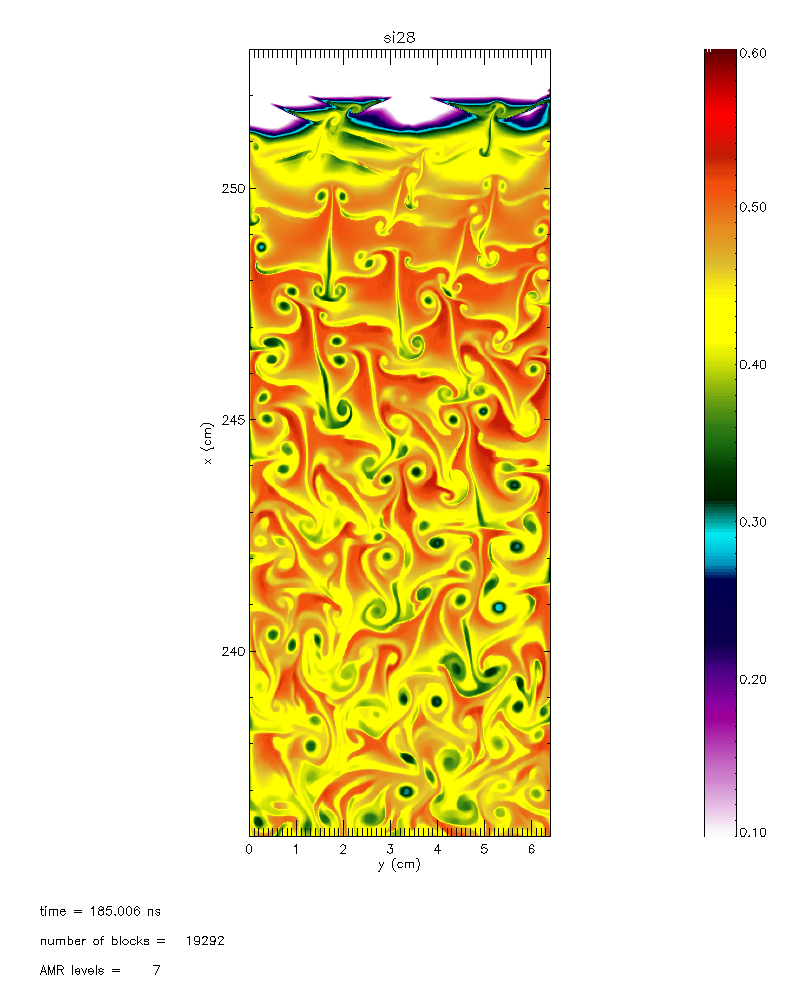
2D, silicon |
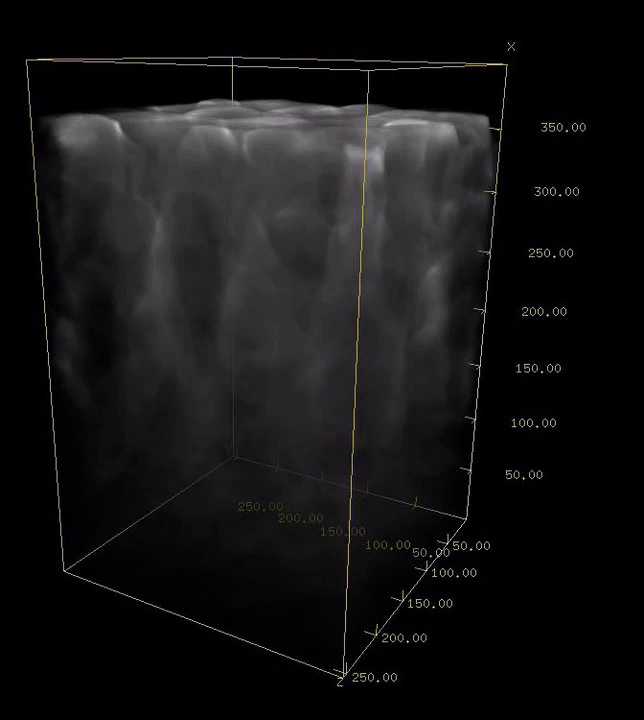 3D pressure mp4 movie |
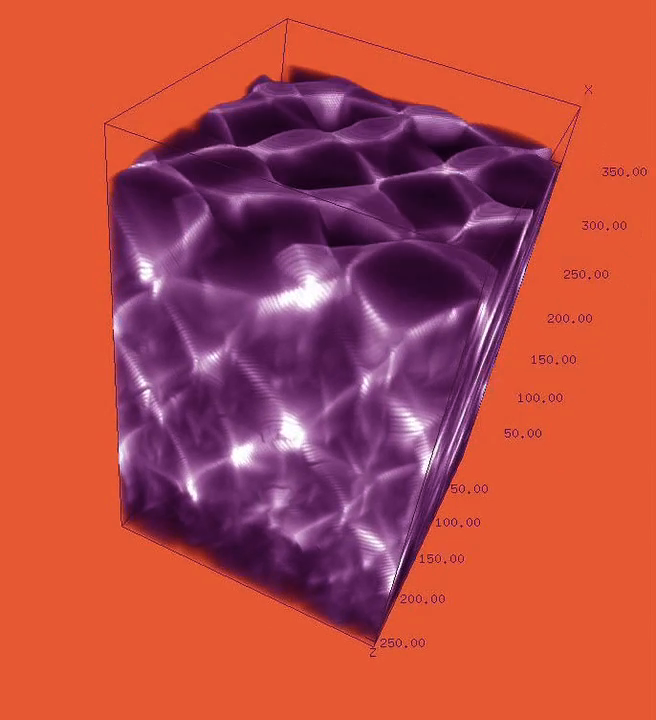 3D max pressure tracks mp4 movie |
 3D silicon mp4 movie |